21 Jul 2025
On June 24, 2025, the Advanced Materials Research Center (AMRC) at Xi’an Jiaotong-Liverpool University (XJTLU) successfully hosted the “Materials Engineering Research Exchange Workshop”. The event brought together distinguished scholars from XJTLU, the University of Science and Technology of China (USTC), Suzhou Laboratory, Soochow University, and the Suzhou Institute of Nano-Tech and Nano-Bionics (SINANO). With a focus on cutting-edge developments in materials science, the workshop provided a valuable forum for interdisciplinary knowledge sharing and strategic research networking.
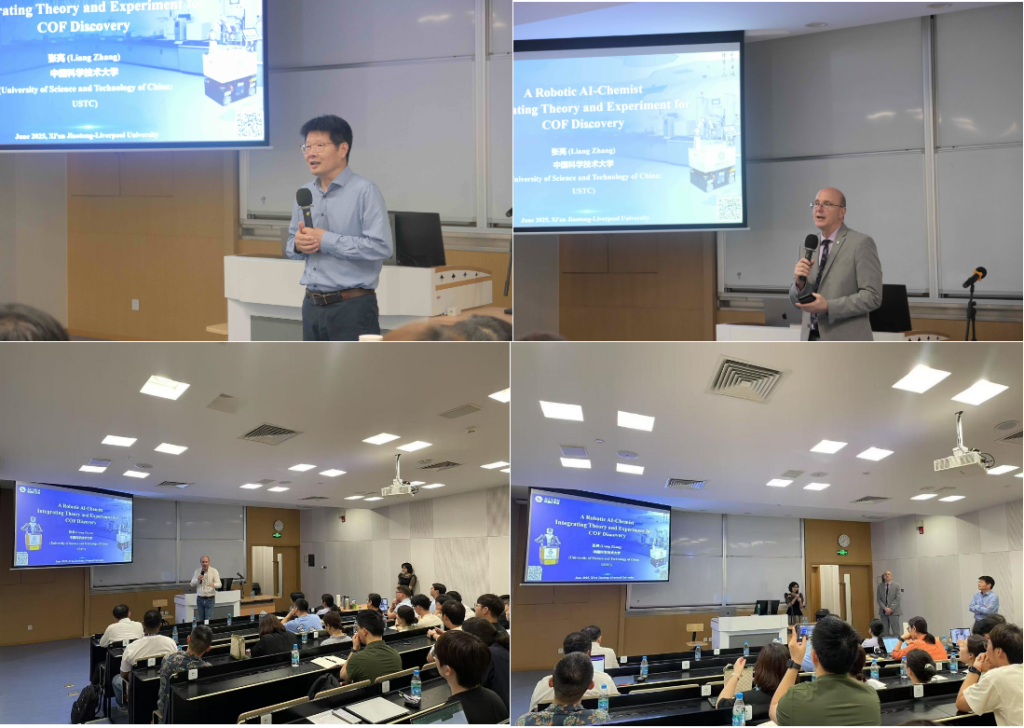
The workshop commenced with an opening address by Prof. Li Yang, Director of AMRC and Chair of the event. In her remarks, Prof. Yang highlighted the pivotal role of cross-institutional collaboration in advancing scientific discovery and innovation. She also extended her sincere appreciation to all invited guests for their presence and active participation.
Building on this welcoming note, Prof. Zhoulin Ruan, Vice President of XJTLU, delivered a meaningful speech emphasizing the university’s strong support for research-led initiatives. He expressed his enthusiasm for witnessing such a gathering of prominent academics and noted that events like this embody XJTLU’s ongoing commitment to sustaining an open and dynamic academic culture. Next, Prof. Konstantinos Papadikis, Associate Director of the AMRC, introduced the Center’s vision, current progress, and future trajectory, and discussed the importance of partnerships, both within and beyond the university. Closing the opening ceremony, Prof. John Moraros, Dean of the School of Science, offered strategic reflections on the university’s evolving research landscape. He described AMRC as a key institutional asset that reflects XJTLU’s ambition to become a globally competitive research center. He also proudly noted that several accomplished scholars from diverse academic backgrounds have recently joined the Center, strengthening its interdisciplinarity and intellectual capacity.
Keynote Speeches: First session
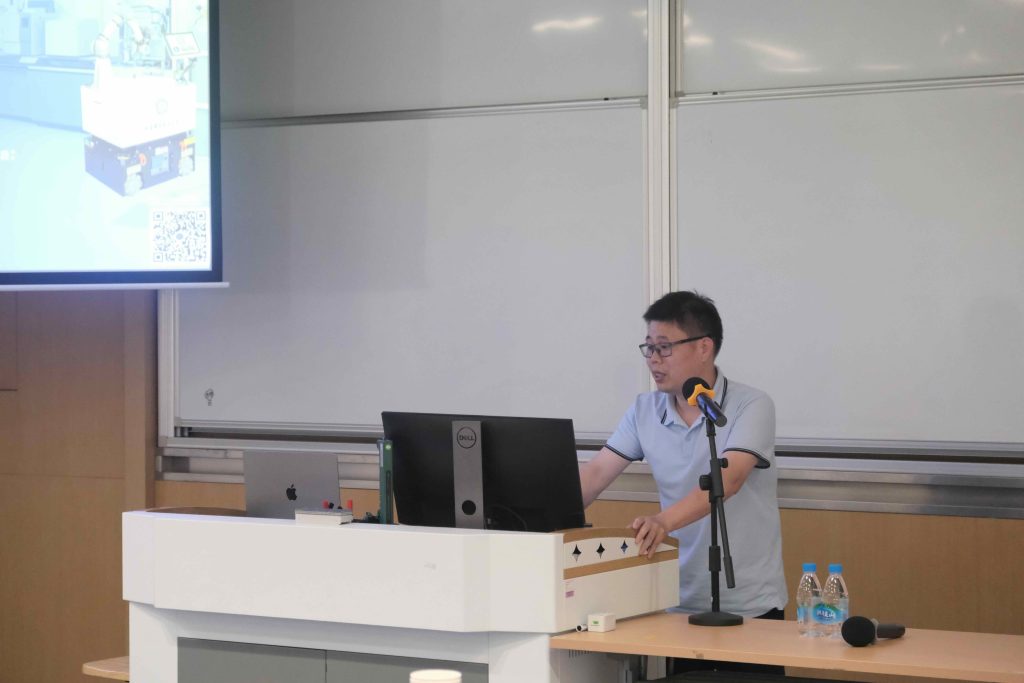
The first presenter, Dr. Liang Zhang, introduced an innovative approach to materials discovery using a Robotic AI Chemist in his talk titled “A Robotic AI-Chemist Integrating Theory and Experiment for COF Discovery”. This intelligent system seamlessly combines computational modelling with automated experimentation, dramatically accelerating the discovery of covalent organic frameworks (COFs). His presentation showcased the transformative potential of integrating artificial intelligence and robotics in enhancing both the speed and precision of materials development.
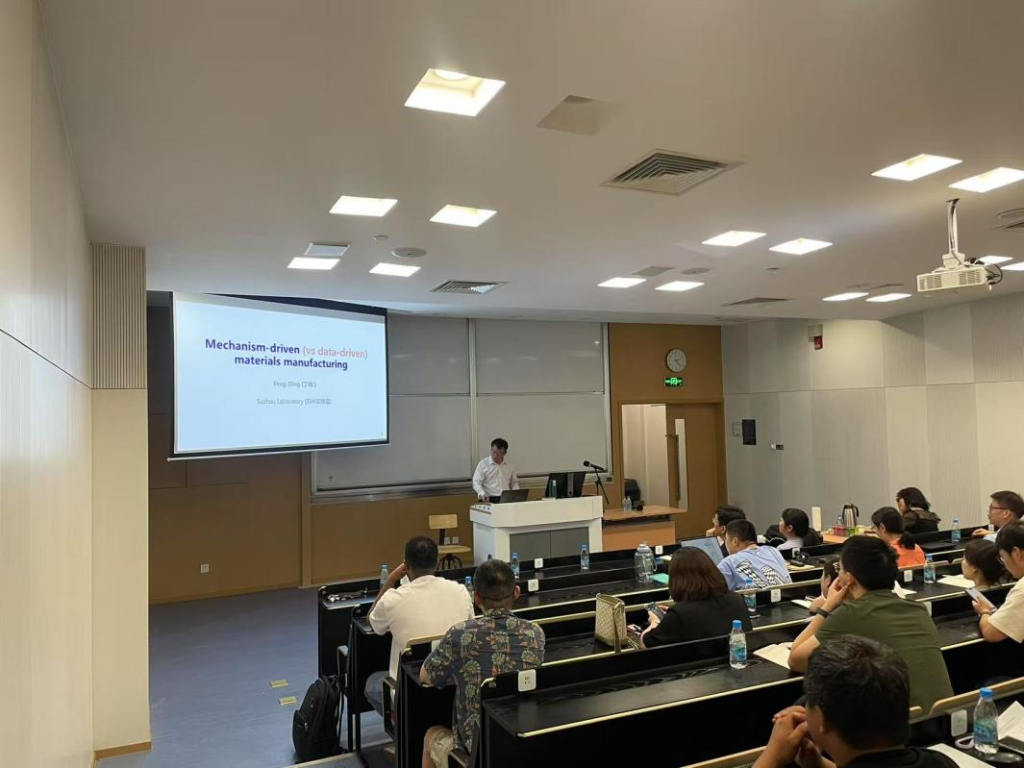
Next, Prof. Feng Ding from Suzhou Laboratory presented his work on Mechanism-Driven Precise Materials Manufacturing. He illustrated how atomic-level theoretical insights can guide the synthesis of materials with greater control and reproducibility, offering a pathway toward more scalable and reliable fabrication techniques. His talk highlighted the value of theory-informed methodologies in shaping the next generation of advanced materials.
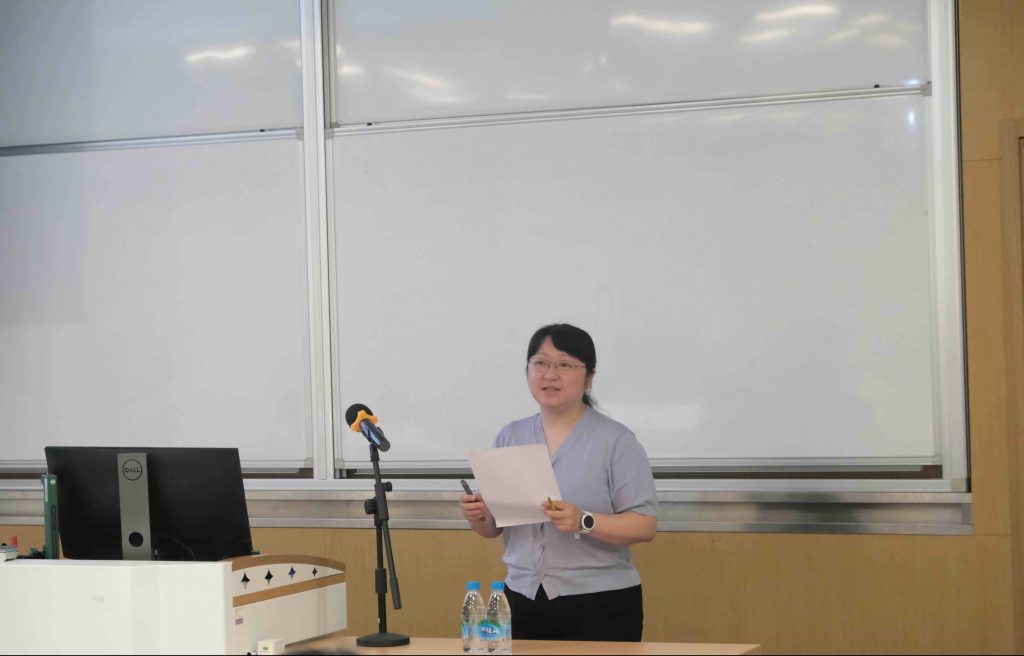
As the keynote speaker of the first session, Prof. Yang Peng, Dean of the College of Energy at Soochow University, focused on institutional development strategies and the construction of a robust research ecosystem. She systematically outlined the College’s “three-in-one” disciplinary framework and highlighted its full-chain innovation layout across several key areas, including advanced materials for new energy, high-efficiency solar energy utilization, next-generation energy storage technologies, green hydrogen and carbon-negative technologies, and intelligent energy systems. Prof. Peng particularly emphasized how the College exemplifies the role of regional universities in driving energy technology transformation and innovation through interdisciplinary integration of materials science, chemistry, environmental science, and big data.
Keynote Speeches: Second session
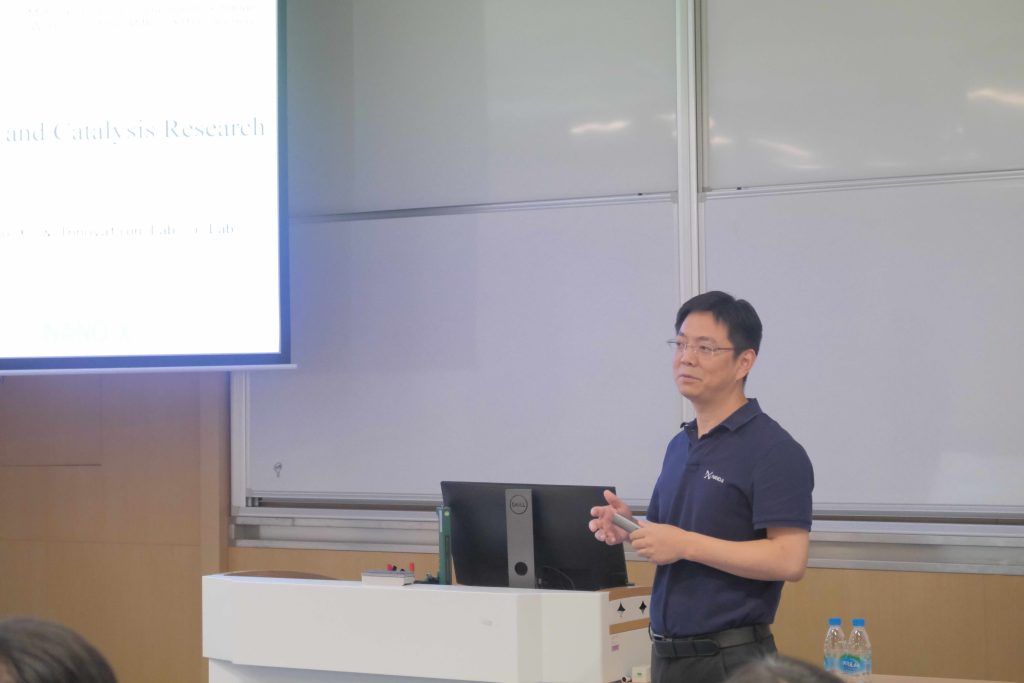
After the break, Prof. Yi Cui from SINANO delivered a compelling presentation on the Nano-X platform, the world’s first modular vacuum-interconnected research system. He detailed how this state-of-the-art setup facilitates in situ and quasi-in situ characterization of materials under ultra-clean, highly controlled environments. Prof. Cui elaborated on its applications in catalysis and surface science, demonstrating the platform’s capacity to resolve atomic-scale phenomena that are critical to understanding interfacial processes and material transformations.
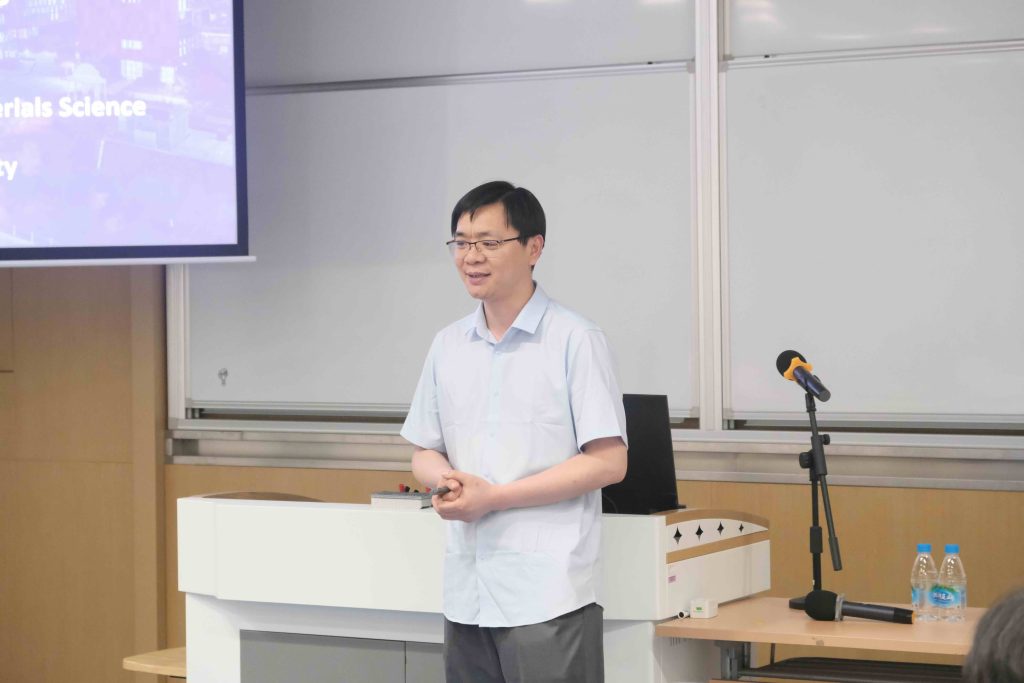
The final presentation was given by Dr. Lifeng Ding from XJTLU, who explored the integration of machine learning and computational modelling in the design of nanoporous materials. Dr. Ding illustrated how predictive algorithms can guide the identification of materials with optimized performance for gas separation and sensing applications. His talk highlighted the growing influence of data-driven methods in materials informatics and outlined ongoing research initiatives at XJTLU.
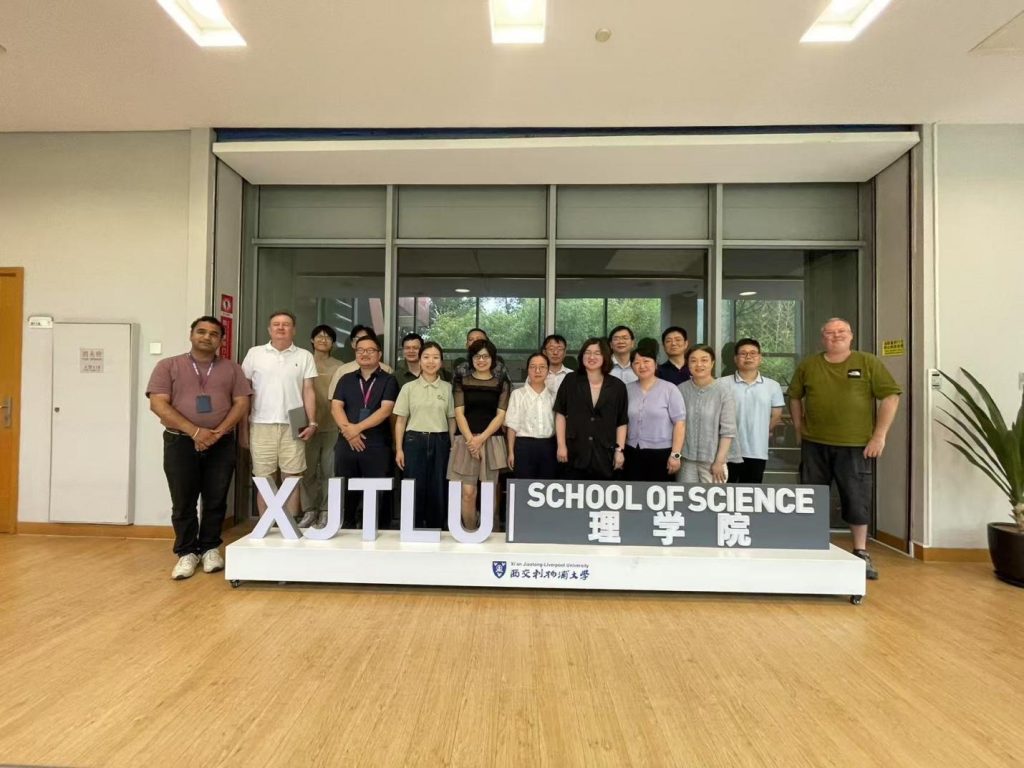
The “Materials Engineering Research Exchange Workshop” concluded with heartfelt closing remarks from Prof. Li Yang, who expressed her gratitude to all speakers, guests, and organizers. She reaffirmed AMRC’s commitment to advancing interdisciplinary research and facilitating long-term partnerships across academia and industry.
Thank You!
Our sincere thanks go to all our speakers, attendees, and organizers for making the “Materials Engineering Research Exchange Workshop” a success. We look forward to continuing collaboration and research exchange.
For more information about our AMRC-related academic programmes, please contact the following individuals:
· BEng in Materials Science and Engineering, Dr. Tianhong Gu (Tianhong.Gu@xjtlue.edu.cn)
· MRes in Materials Science and Engineering, Professor Konstantinos Papadikis (Konstantinos.Papadikis@xjtlu.edu.cn)
· PhD in Chemistry, Dr. Lifeng Ding (Lifeng.Ding@xjtlu.edu.cn)
Content: Mahider Tekalgne
Review: Professor John Moraros,
Professor Li Yang
Translation、New media:Luyao
21 Jul 2025








